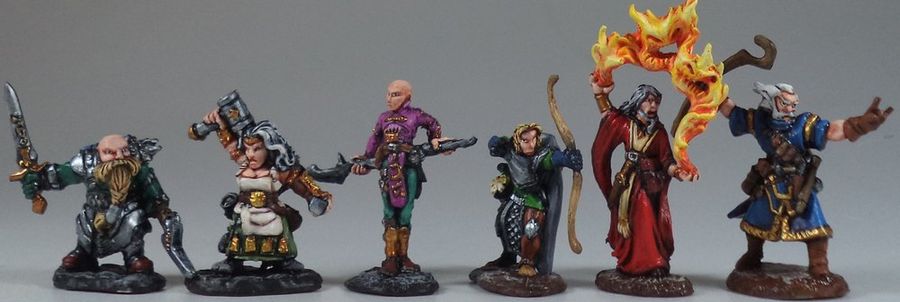
About Time - A Guide to Application
First - if you're not familiar with Jeffro Johnson's ideas on 1:1 time and how, at minimum, timekeeping is an overlooked and ignored aspect of roleplaying games that comes directly from its wargaming roots, watch the above video.
With that out of the way...
What tools do you need? How do you get started?
My first piece of advice? Don't overcomplicate things. One beauty of fully 1:1 is that your guide to seasons and time passing is your regular calendar and the world outside your door.
But, how do I get started?
Ok, I'll admit, it's likely easier to simply start a whole new campaign than fundamentally change the nature of a game you've already been running with friends, with established expectations.
So do that.
OK, but your table doesn't want to start a whole new campaign. Or some other factor - table time - gets in the way.
Do what you can.
Any degree to which you can add the passage of time as a factor in the game, without cheating - say, a perpetual "fast forward" being available - you are making it a better game. Why? Because RPGs and wargames are all about applying limited resources to achieve a goal.
Take torches, for example.
Let's say a torch lasts 1 hour.
OK, so?
If a turn is 1o minutes, and your movement rate, exploring a dungeon, is 120 feet - exploring carefully, looking for ambushes, mapping side passages, keeping orientation, etc. - then every 720 feet, you have to swap out a torch. If you run out.... wups. That doesn't factor in ten minutes of rest every hour.
How deep are you planning on delving? Who's carrying all of those torches, in addition to weapons, armor, etc?
Lanterns start to sound pretty good.
It gets better. Let's say the torch or lantern casts a reasonable amount of light in pitch black to see 30-40 feet. Now the entire party needs to stay clustered together - and keep in mind that the torch itself is visible much further away than anything you can see with it.
So much for surprise for the party, but arrows from the dark directed at a backlit party?
It gets better. Leaving time aside, but still safely within resources - someone has to hold the torch. that means no "sword and shield", no two-handed weapons.
Now they need to hire henchmen. And armor them (I mentioned ambushes earlier, right? Guy holding the torch standing out like beacons?)
And maybe a guy with dark/infravision and a ring of invisibility would be a good thing.
And so we show how time tracking, and a bit of common sense (reflected in the rules for AD&D, btw) regarding how things actually work, make a huge difference on exactly how you're going to crawl that dungeon.
Here's a thing: changing the rules - and deciding to apply overlooked rules is very much changing the rules of the game you were actually playing - changes the game. You may not be able to go "pure," but again, it helps.
So here's what I did with the ACKs Dwimmermount campaign that had been running for years. First of all - like a lot of more modern RPGs, time tracking is in ACKs more than most players use today, but it doesn't have hte full 1:1 between game "days" and real days , with real ones as the anchor around which all others are scheduled, like AD&D does. Instead of fundamentally going pure 1:1 with the follow-on changes to party structure, I pulled a calendar out for the game world to track the game-world date, and made the following calls:
- Time in game passes in game. There is no abuse of this re: "let's just wait five weeks for my spell research to complete", but if you spend a week traveling, a week passes.
- Unless we hit "pause" in a delve due to time running short - generally rare, actually - time between games passes 1:1, so the game time moves forward, and there's downtime between adventures.
- Oh, and seasons.
Was it pure AD&D 1:1? No - but it baked in the passage of time between sessions. It also gave me a fixed and objective structure to hang changes in the world outside of the party, to respond to the changes they've in turn made on the world, with little tracking or thought to be applied.
It improved the game.
Aside - one aspect of full 1:1 that I think is undersold is how little load/tracking it adds while giving you back a ton of verisimilitude: Seasons, holidays, harvests, the passage of time.
